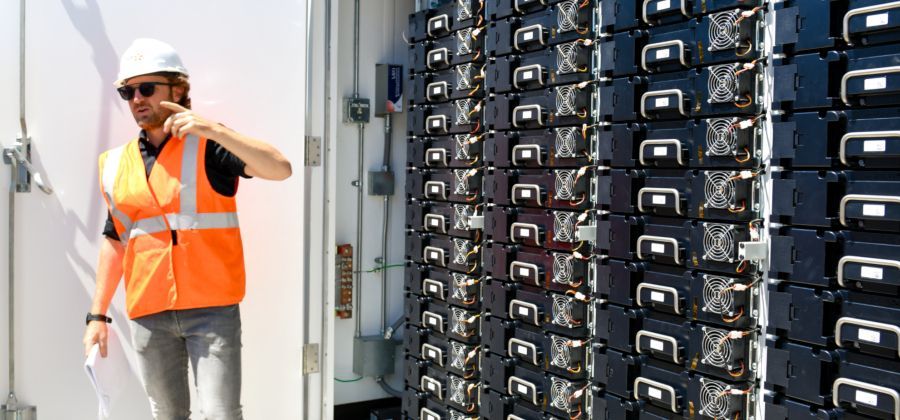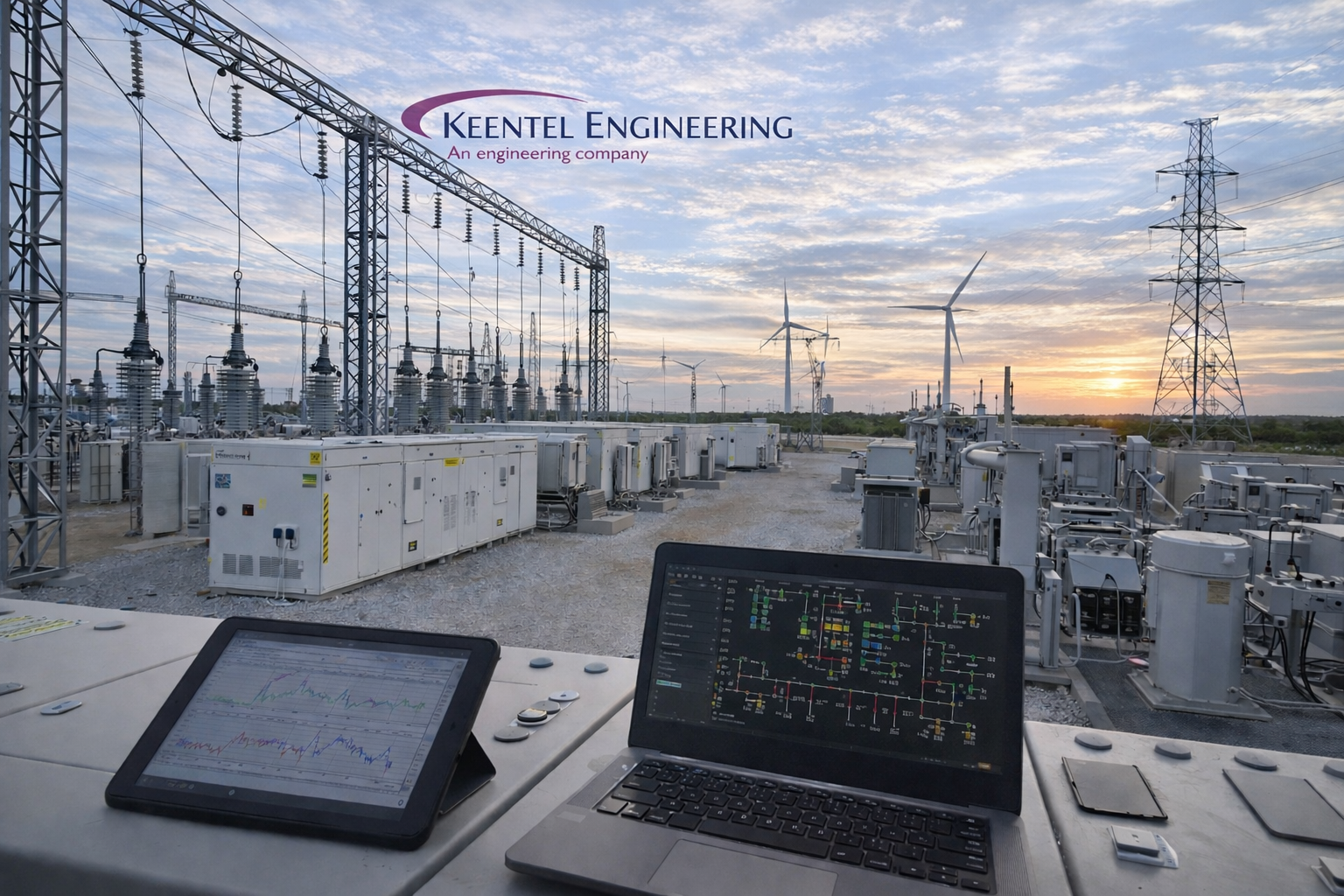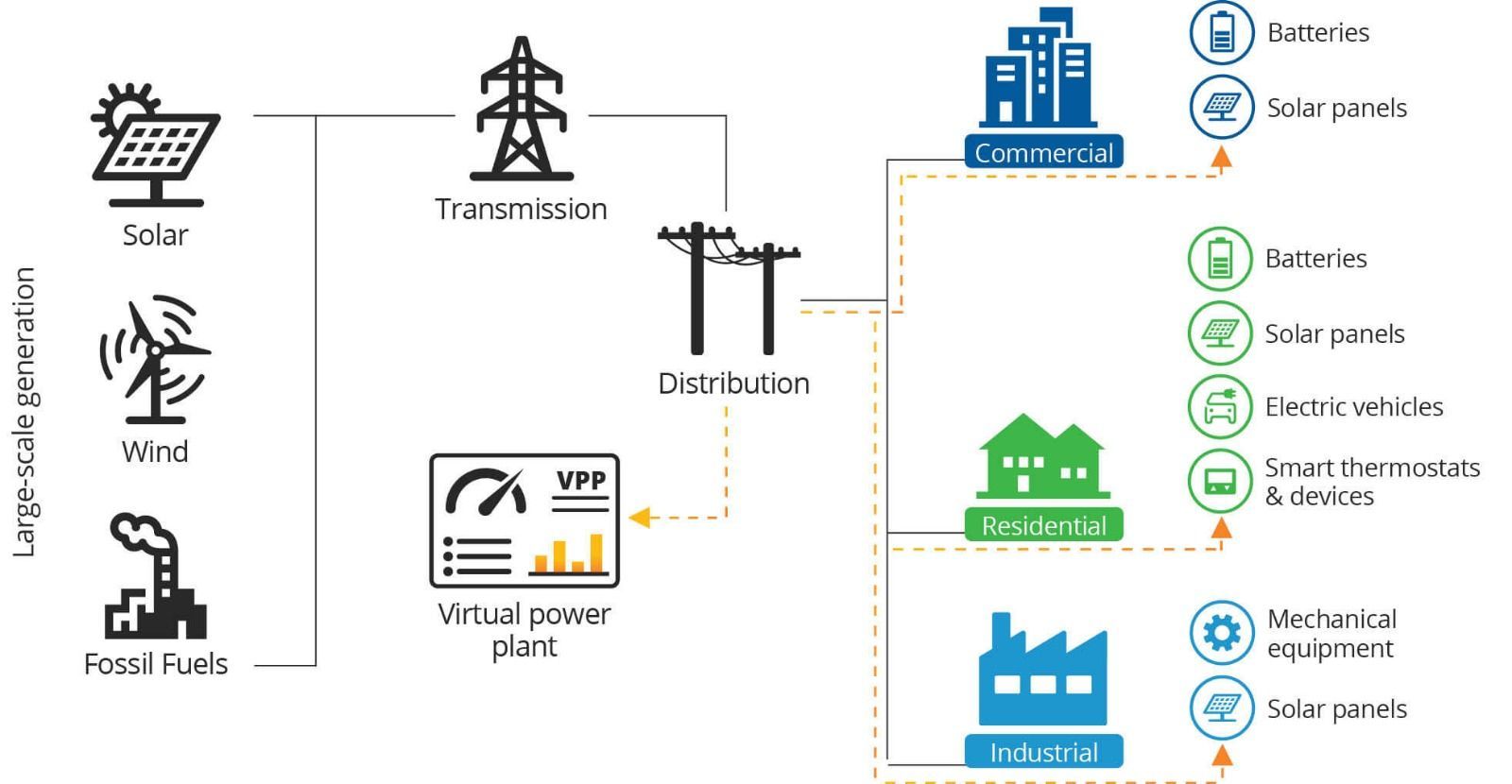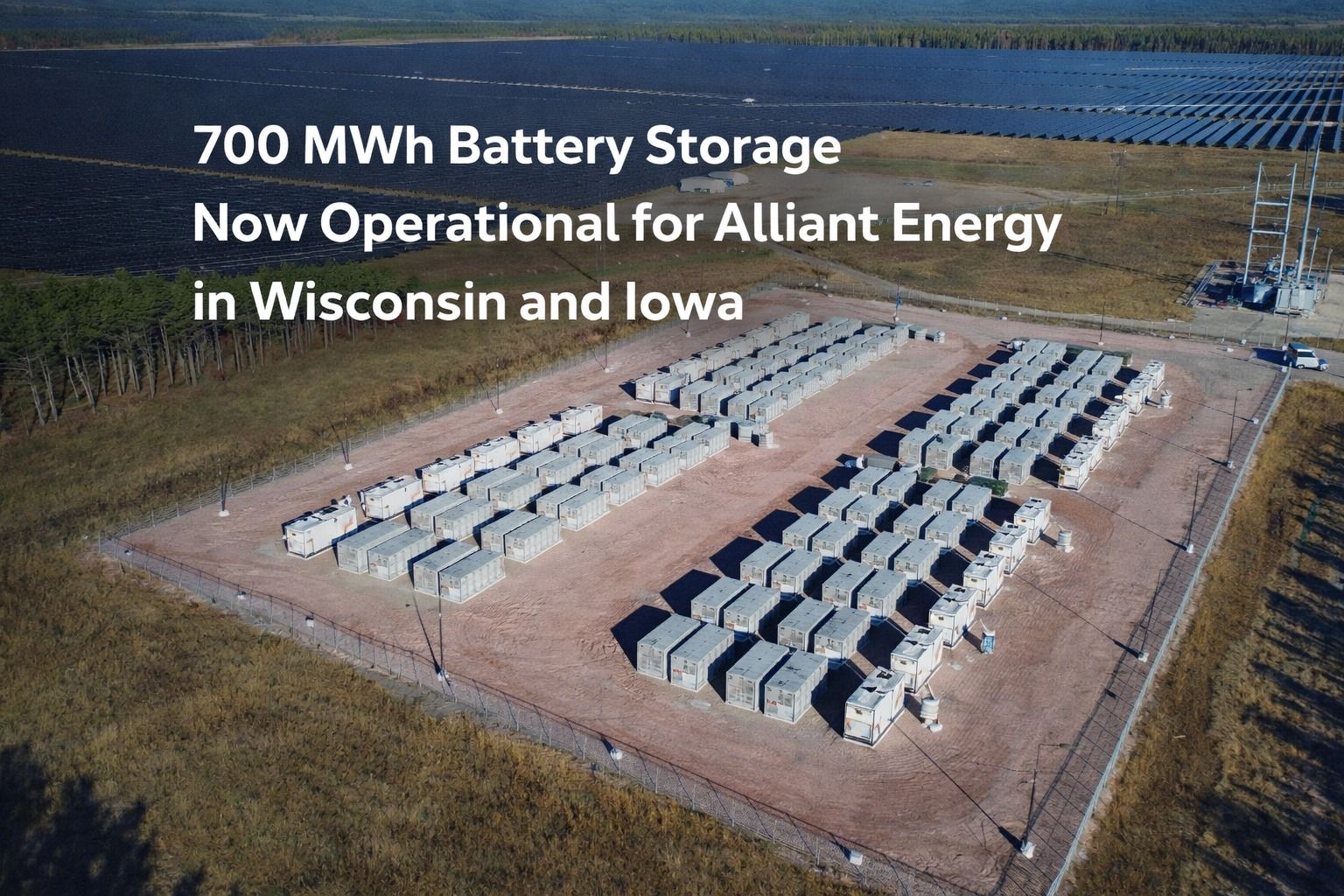A Coordinated Electric System Interconnection Review—the utility’s deep-dive on technical and cost impacts of your project.
The Role of an Electrical Engineer in Utility-Scale Battery Storage Projects
January 1, 2023 | Blog

Introduction
Utility-scale battery storage systems (BESS) are revolutionizing the modern energy landscape by improving grid stability, enabling renewable energy integration, and reducing carbon emissions. These large-scale systems play a pivotal role in the global transition to cleaner power infrastructure.
In this blog, we explore the critical responsibilities of electrical engineers in utility-scale battery storage projects—from concept to commissioning and long-term operation.
Explore our dedicated Utility-Scale Battery Storage Services to see how we support developers and utilities across the U.S.
System Design and Integration
One of the primary responsibilities of an electrical engineer in utility-scale BESS projects is leading the system design across the 30%, 60%, 90%, IFC, and As-Built phases. This includes:
- Determining battery capacity and technology
- Optimizing system configuration
- Integrating the BESS with existing infrastructure
- Aligning with grid demands, energy profiles, and interconnection standards
Engineers work across disciplines to ensure both the battery and electrical systems operate efficiently, safely, and reliably.
Need design support? Learn more about our Power System Studies and modeling solutions.
Feasibility Studies
Before construction begins, electrical engineers conduct feasibility studies to determine the technical and financial viability of deploying a battery system.
These studies include:
- Load profile and consumption analysis
- Peak shaving and time-of-use optimization
- Projected grid services revenue (e.g., frequency regulation, spinning reserve)
- Interconnection feasibility and site constraints
Performance Modeling and Simulation
Using tools like ETAP, SKM, and DIgSILENT, engineers simulate system performance under varying load, frequency, and voltage conditions. This allows for:
- Battery degradation forecasting
- Thermal behavior modeling
- Optimal charge/discharge strategy
- Grid compliance modeling (e.g., IEEE 2800-2022)
Safety and Compliance
Safety protocols are non-negotiable in BESS due to the high energy density and system voltage. Engineers are responsible for:
- Ensuring compliance with NEC, NFPA, IEEE, and UL safety codes
- Designing fire suppression systems and thermal runaway protection
- Implementing emergency shutdown mechanisms
- Grounding, isolation, and arc flash mitigation
Learn how we address safety in our NERC Compliance Engineering services.
Grid Interconnection
Engineers ensure seamless integration of the BESS with utility infrastructure by managing:
- Inverter selection and configuration
- Power quality (THD, flicker, harmonics)
- Grid code compliance (PJM, CAISO, ERCOT, etc.)
- Protection coordination
- Communication protocols (IEC 61850, Modbus)
Our team specializes in POI Interconnection Support for grid-tied storage systems.
Testing and Commissioning
Before commercial operation begins, electrical engineers:
- Supervise functional testing and verification
- Coordinate commissioning across subsystems
- Ensure performance KPIs match modeled expectations
- Resolve interface issues between BESS, SCADA, and grid control systems
Monitoring and Maintenance
Once live, engineers deploy advanced battery monitoring systems (BMS) and energy management systems (EMS) to:
- Track performance metrics and cell health
- Detect anomalies or early degradation
- Optimize energy throughput
- Schedule preventive maintenance
Their goal is to extend battery life, maintain high system availability, and support long-term ROI.
Conclusion
Electrical engineers are central to every phase of a utility-scale battery storage project—from feasibility to grid integration and performance optimization. As the demand for renewable integration and flexible grid resources grows, their role will only become more vital.
Whether it's safety compliance, power system modeling, or interconnection, engineers ensure every BESS is built to perform, scale, and last.
Partner with Keentel for your next utility-scale BESS project. We provide end-to-end electrical engineering and compliance support across the U.S.
Ready to Engineer Your Battery Storage Project?
Keentel Engineering specializes in design, modeling, safety, and grid interconnection for utility-scale battery energy storage systems.

About the Author:
Sonny Patel P.E. EC
IEEE Senior Member
In 1995, Sandip (Sonny) R. Patel earned his Electrical Engineering degree from the University of Illinois, specializing in Electrical Engineering . But degrees don’t build legacies—action does. For three decades, he’s been shaping the future of engineering, not just as a licensed Professional Engineer across multiple states (Florida, California, New York, West Virginia, and Minnesota), but as a doer. A builder. A leader. Not just an engineer. A Licensed Electrical Contractor in Florida with an Unlimited EC license. Not just an executive. The founder and CEO of KEENTEL LLC—where expertise meets execution. Three decades. Multiple states. Endless impact.
Services

Let's Discuss Your Project
Let's book a call to discuss your electrical engineering project that we can help you with.

About the Author:
Sonny Patel P.E. EC
IEEE Senior Member
In 1995, Sandip (Sonny) R. Patel earned his Electrical Engineering degree from the University of Illinois, specializing in Electrical Engineering . But degrees don’t build legacies—action does. For three decades, he’s been shaping the future of engineering, not just as a licensed Professional Engineer across multiple states (Florida, California, New York, West Virginia, and Minnesota), but as a doer. A builder. A leader. Not just an engineer. A Licensed Electrical Contractor in Florida with an Unlimited EC license. Not just an executive. The founder and CEO of KEENTEL LLC—where expertise meets execution. Three decades. Multiple states. Endless impact.
Leave a Comment
We will get back to you as soon as possible.
Please try again later.














